By Tess McShane, Director of Housing & Childcare
According to the Bell Policy Center, Jefferson County has a deficit of 20,000 attainable housing units across income levels and affordability. Exploring innovative solutions, like affordable housing, modular homes, multi-family developments, etc., can provide attainable housing solutions for regional workers. As part of the B.O.L.D. 2026 Housing Tour series, the Arvada Chamber explored modular home development as an innovative workforce housing solution. This tour on October 11, in partnership with Addazu Modular Homes and Douglass Colony served as an educational opportunity for local business leaders and community leaders to learn more about modular homes.
Addazu seeks to provide adaptable, affordable, and sustainable modular housing in partnership with Douglass Colony manufacturing as an attainable housing option for the workforce. Workforce housing describes housing for individuals and families earning 60% – 120% of the area median income. That describes individuals earning $54,780 – $109,560 or a 4-person household earning $78,240 – $156,480. With less than 18% of Arvada’s workforce living and working in Arvada, increased access to attainable housing solutions is key to a thriving business community.
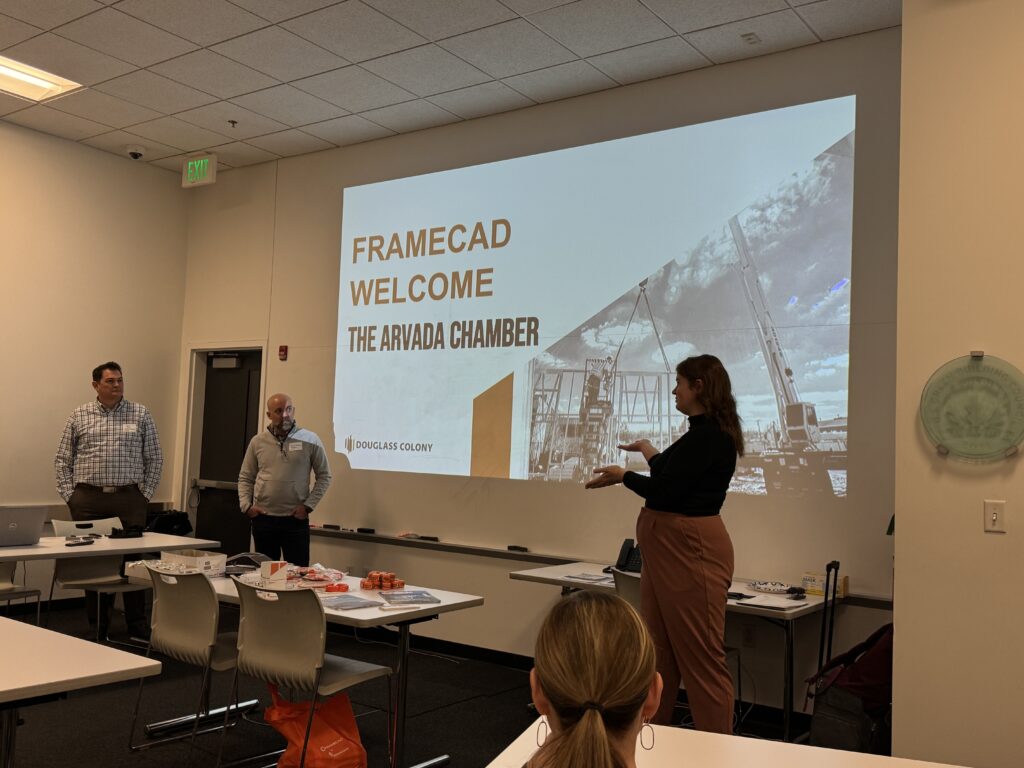
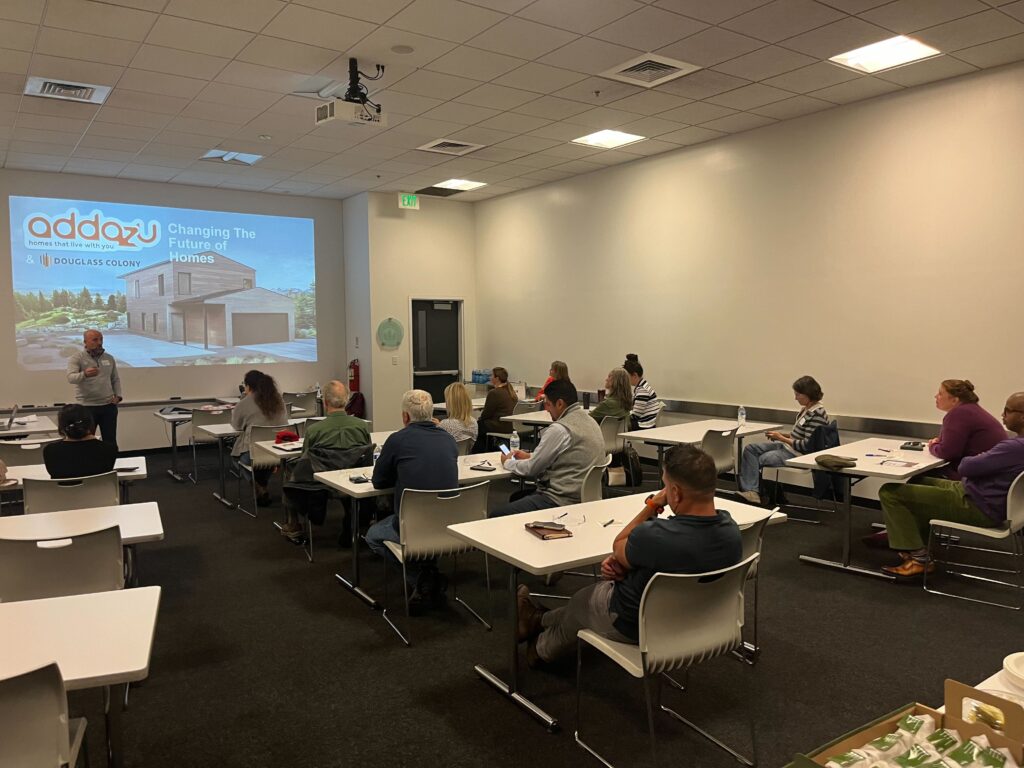
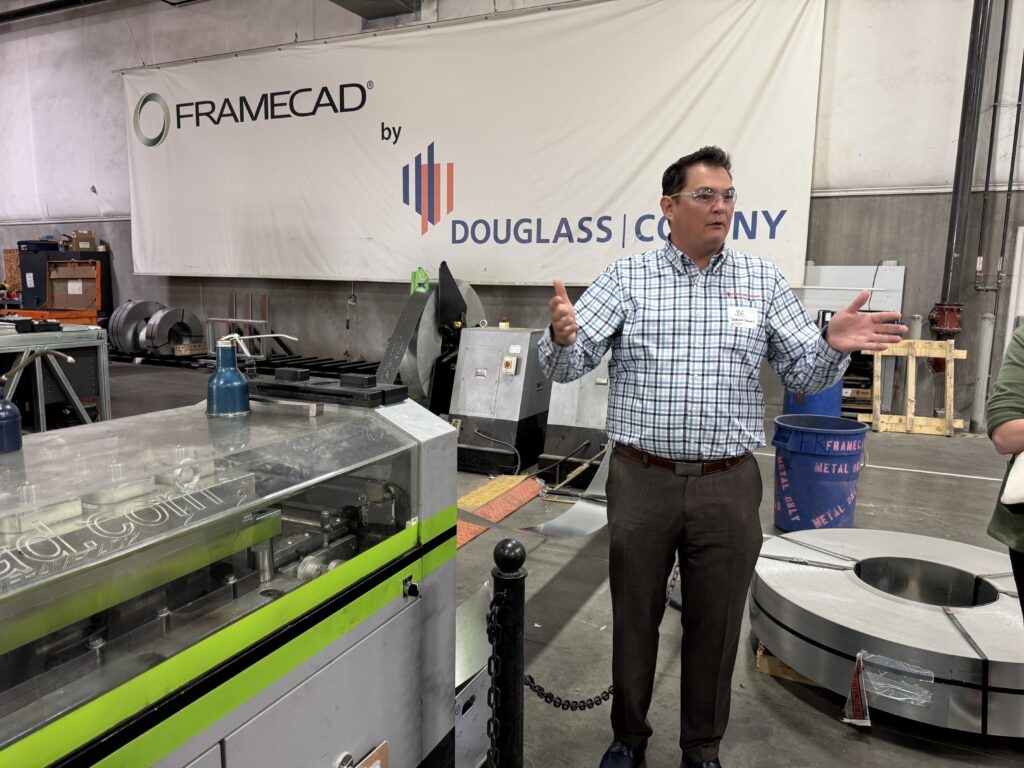
Through the process developed by Addazu and Douglass Colony, their modular housing developments work to reduce waste and increase sustainable manufacturing and production. Similar to other modular home developments, there are significant cost savings in terms of time, labor, and waste. Addazu and Douglass Colony shared that their products work to:
- Reduce waste and increase sustainable manufacturing and production
- Have ¼ of the manpower requirements to construct compared to a non-modular home development
- Have a concurrent construction process allowing them to speed up construction time on the different elements of the home
- Erect the finished home in ¼ of the time
The tour allowed local business and community leaders to see the process of modular housing manufacturing, learn more about the construction process, and learn about cost and financing options that can make modular housing attainable. Modular homes are built in sections called panels, which are then transported to the housing site and assembled onsite. Addazu and Douglass Colony use steel, called FramCAD, to make their modular homes. FrameCAD is an advanced steel-frame design that allows for the production of panelized metal stud framing in a controlled factory setting. While it is true that steel is more expensive than other construction materials, like wood, for framing homes. The FrameCAD steel and modular home manufacturing has found significant savings that can make this housing model attainable for the workforce, including 50% reduced construction insurance costs and 40% reduced long-term owners home insurance costs.
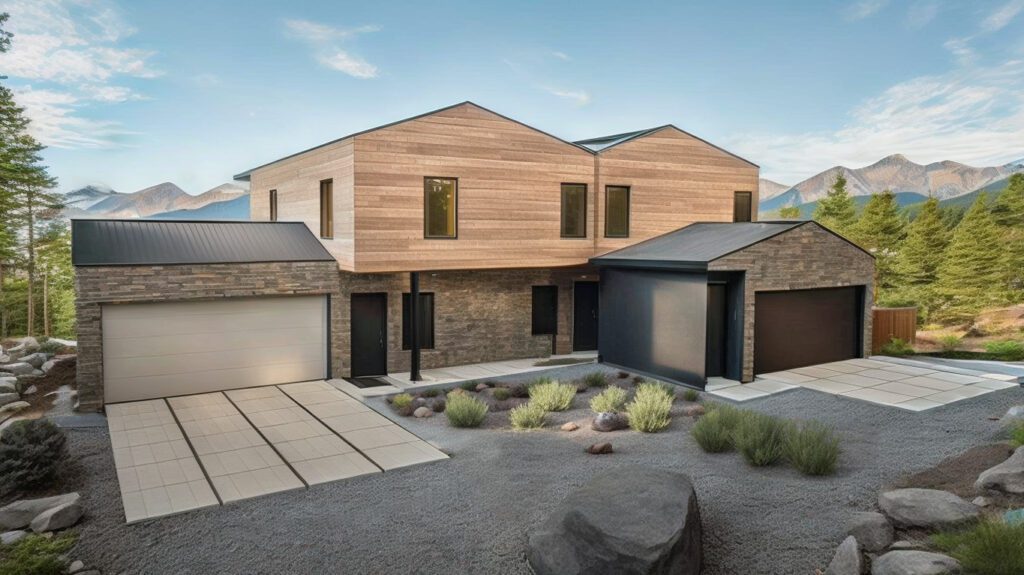
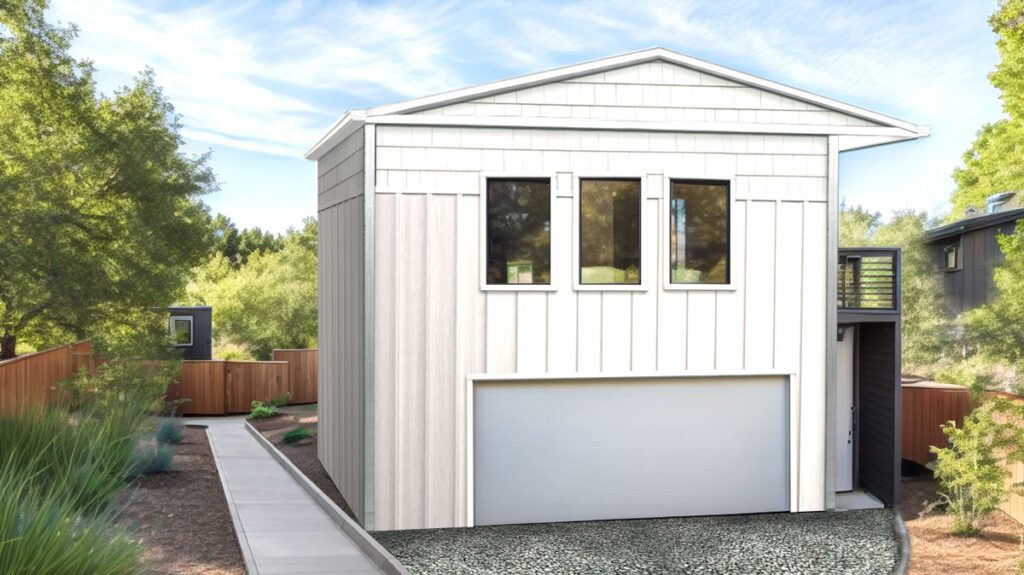
While modular construction alone cannot solve the affordable housing crisis, it offers a promising approach to increase the supply of attainable workforce housing. By combining faster build times, lower costs, and maintained quality – modular homes present an innovative solutions to address housing shortages and improve affordability for working individuals and families.
If you are interested in how you can use your voice in local and regional advocacy efforts, the B.O.L.D. 2026 Housing Initiative has a Housing Advocates Program that offers information on how the housing challenge impacts businesses, information on advocacy and testifying, and a template for creating your own housing testimony., If you are interested in learning more or being trained as a Housing Advocate, please complete this form.

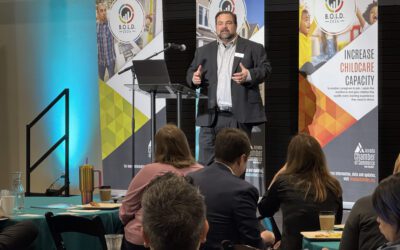

0 Comments